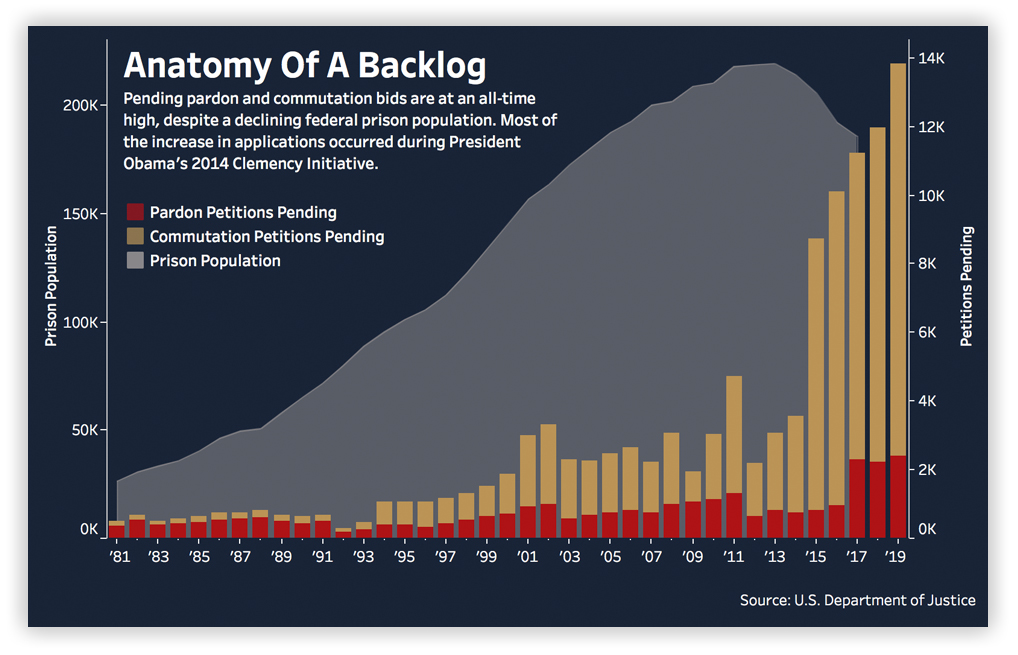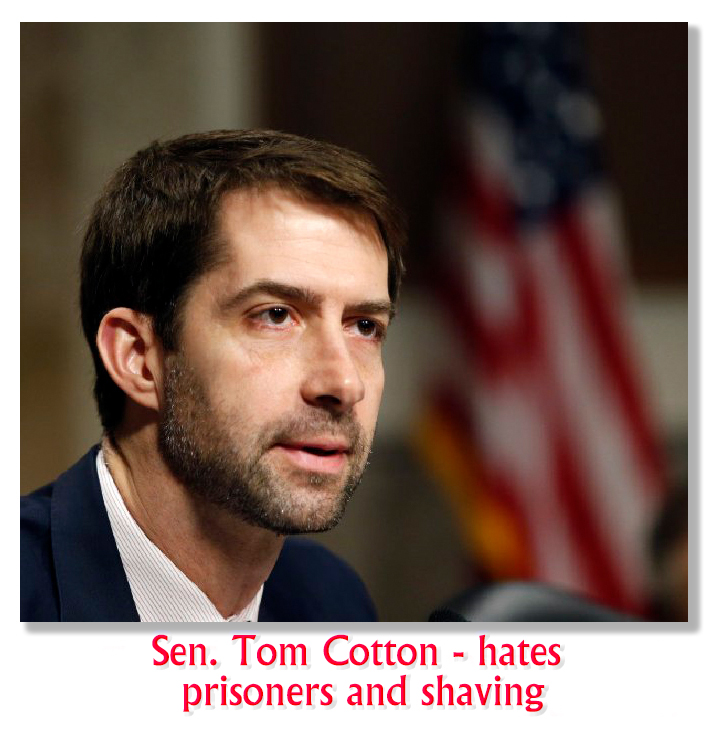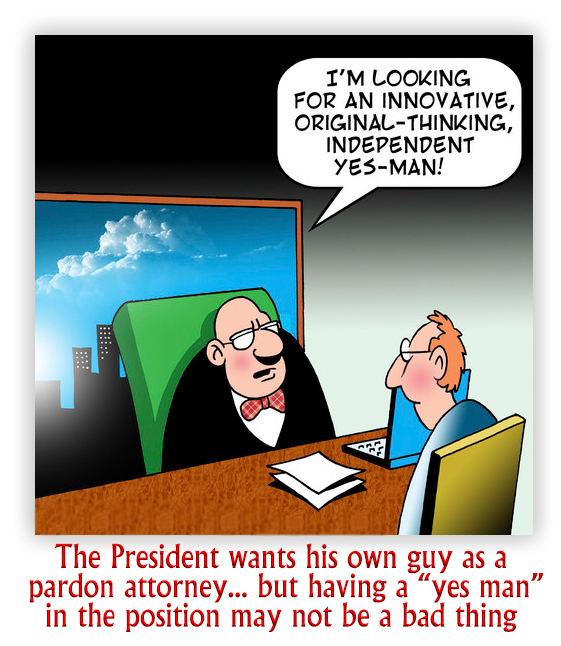We post news and comment on federal criminal justice issues, focused primarily on trial and post-conviction matters, legislative initiatives, and sentencing issues.

IT’S WHO YOU KNOW…
 President Trump granted clemency to 11 people last week, including several big names such as Michael Milken and Bernard Kerik (pardons) and Rod Blagojevich (commutation), but also three current female Bureau of Prisons inmates. The media were obsessed with “political prisoner” Blago, but among BOP inmates, attention was focused on the three ordinary people were included on the list.
President Trump granted clemency to 11 people last week, including several big names such as Michael Milken and Bernard Kerik (pardons) and Rod Blagojevich (commutation), but also three current female Bureau of Prisons inmates. The media were obsessed with “political prisoner” Blago, but among BOP inmates, attention was focused on the three ordinary people were included on the list.
The women, two drug defendants and one serving a 35-year sentence for healthcare fraud, may have been ordinary inmates, but how they made Trump’s list proves once again that it’s who you know that counts.
(A pardon is complete exoneration from the conviction, while a commutation leaves the conviction in place but waives some or all of the remaining sentence. “Clemency” is the overarching term for executive action to forgive by pardon or release through commutation).
Trump commuted Alice Marie Johnson’s life sentence in 2018 at the urging of reality TV star Kim Kardashian. Trump’s reelection campaign featured Johnson’s story in a recent Super Bowl ad. Johnson told the AP that when Trump had been looking specifically for female candidates, and asked her for a list of other women who deserved clemency, she gave him the names of her friends.
 Amy Povah, founder of clemency group Clemency for All Nonviolent Drug Offenders Foundation (CAN-DO Foundation), told The New York Times that she and other advocates submitted a list of about a dozen meritorious female offenders directly to the White House late last year. “When it boiled down to only three, it’s not surprising that the White House put value on the ones Alice served time with and knew their character,” Povah said. “You know who those diamonds are in there who are so deserving, and you know who the people are that are still engaging in shenanigans.”
Amy Povah, founder of clemency group Clemency for All Nonviolent Drug Offenders Foundation (CAN-DO Foundation), told The New York Times that she and other advocates submitted a list of about a dozen meritorious female offenders directly to the White House late last year. “When it boiled down to only three, it’s not surprising that the White House put value on the ones Alice served time with and knew their character,” Povah said. “You know who those diamonds are in there who are so deserving, and you know who the people are that are still engaging in shenanigans.”
While 14,000 clemency petitions sit unaddressed at the Justice Dept’s Office of Pardon Attorney, Trump continues to focus on clemency for people with connections. “There is now no longer any pretense of regularity,” Margaret Love, who served as pardon attorney under President Clinton, told The New York Times. “The president seems proud to declare that he makes his own decisions without relying on any official source of advice, but acts on the recommendation of friends, colleagues and political allies.”
Holly Harris, president of the criminal justice group Justice Action Network, applauded Trump “for taking these steps,” but told the Associated Press she hoped to see him use his power to help “any of the thousands of deserving individuals who are neither rich, nor famous, nor connected” and “every bit as deserving of a second chance.”
The Washington Post reported last week the White House is taking more control over clemency, with Trump aiming to limit DOJ’s role in the process as he weighs a flurry of additional clemency actions. The Post said that an informal task force of at least six people, has been meeting since late last year to discuss a revamped pardon system running through the White House. Senior Advisor Jared Kushner, Trump’s son-in-law, is taking a leading role in the new clemency initiative and has supported the idea of putting the White House more directly in control of the process, officials said.
 Pam Bondi, a former Florida attorney general who served on Trump’s impeachment defense team, is also playing a significant role, vetting applications for clemency recipients. Kushner has personally reviewed applications with White House lawyers before presenting them to Trump for final approval, according to two senior administration officials.
Pam Bondi, a former Florida attorney general who served on Trump’s impeachment defense team, is also playing a significant role, vetting applications for clemency recipients. Kushner has personally reviewed applications with White House lawyers before presenting them to Trump for final approval, according to two senior administration officials.
Trump, who prefers granting clemency to people with compelling personal stories or lengthy sentences, is inclined to grant more clemency before facing voters in November. “He likes doing them,” the official said.
Washington Post, White House assembles team of advisers to guide clemency process as Trump considers more pardons (Feb. 19)
AP, President Trump goes on clemency spree, and the list is long (Feb. 8)
The New York Times, The 11 Criminals Granted Clemency by Trump Had One Thing in Common: Connections (Feb. 19)
The Norwalk Hour, Trump freed Alice Johnson in 2018. Tuesday, he freed three of her friends (Feb. 19)
– Thomas L. Root


















